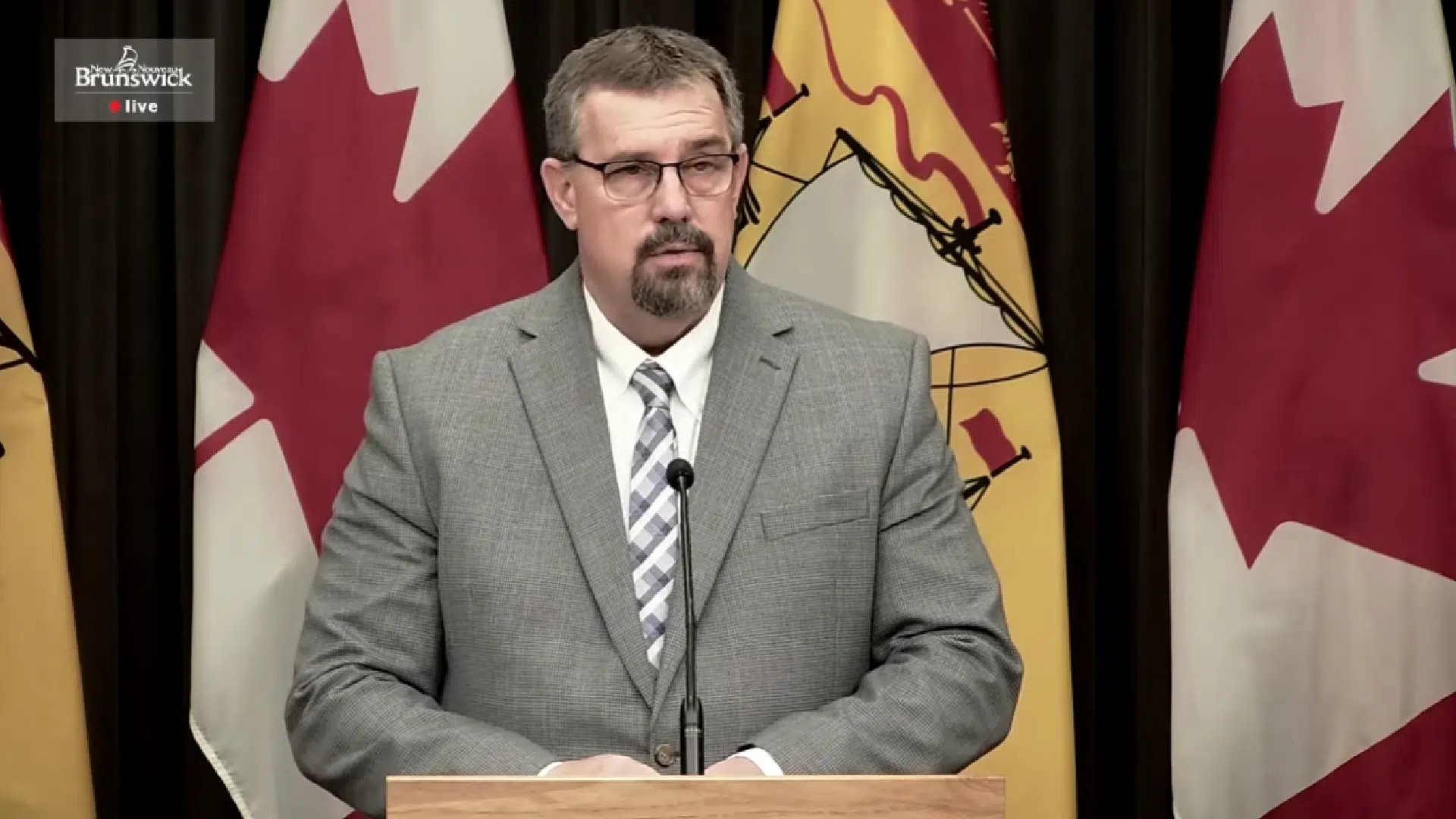New Brunswick is maintaining its controversial changes to gender identity policy in schools — with some minor tweaks.
That is despite a report from the province’s child and youth advocate which found the updated policy violates children’s rights.
“We stand by the changes we made to Policy 713 and we believe that parents should be involved in every aspect of a young child’s education,” Education Minister Bill Hogan told reporters on Wednesday afternoon.
But Hogan also acknowledged there are some areas of the revised policy, which his government updated in June, that need to be clarified.
Policy 713 has always required students under 16 to get parental consent for their preferred name and pronoun to be used for official records, however, there was nothing preventing a teacher from doing so informally.
On Wednesday, Hogan clarified that the use of names in the classroom and in extra-curricular activities is now considered to be formal, meaning it will require parental consent.
But that rule will not apply to guidance counselors, psychologists and social workers when they are supporting the students since those sessions take place in private, he said.
Hogan also clarified that students will be encouraged, rather than directed, to speak with school professionals to come up with a plan to talk with their parents about using a preferred first name — if and when they are ready.
RELATED: Policy 713 changes violate children’s rights: advocate
Last week, Child and Youth Advocate Kelly Lamrock said the government’s changes to Policy 713 violate the statutory conditions of several laws, including the Human Rights Act, the Education Act, and the Canadian Charter of Rights and Freedoms.
“The finding for the purposes of this review is that the changes to Policy 713 place limits on a child’s legal rights to equality, privacy and accommodation,” said Lamrock.
The advocate made a total of 24 recommendations and proposed an amended version of the policy that he said would conform with legal obligations, all of which are non-binding.
Lamrock’s recommended policy said students should have the right to choose how to be addressed informally without parental consent starting at Grade 6.
If a child under Grade 6 requests an informal name or pronoun change, it would be up to the principal to assess the student’s capacity, he said.
Lamrock did not recommend any changes to the rule that requires children under 16 to get consent from their parents to make changes to their official records.
“It should be said that it is not bigoted for a parent to want to know about their child’s major decisions. Equally so, it is not extreme to want children to have privacy and autonomy when they are old and mature enough to exercise,” Lamrock wrote in his report.
Meanwhile, Hogan maintained that it is “fundamentally wrong” to hide information from parents, adding the clarifications address “all” of the concerns raised by the advocate.






Comments